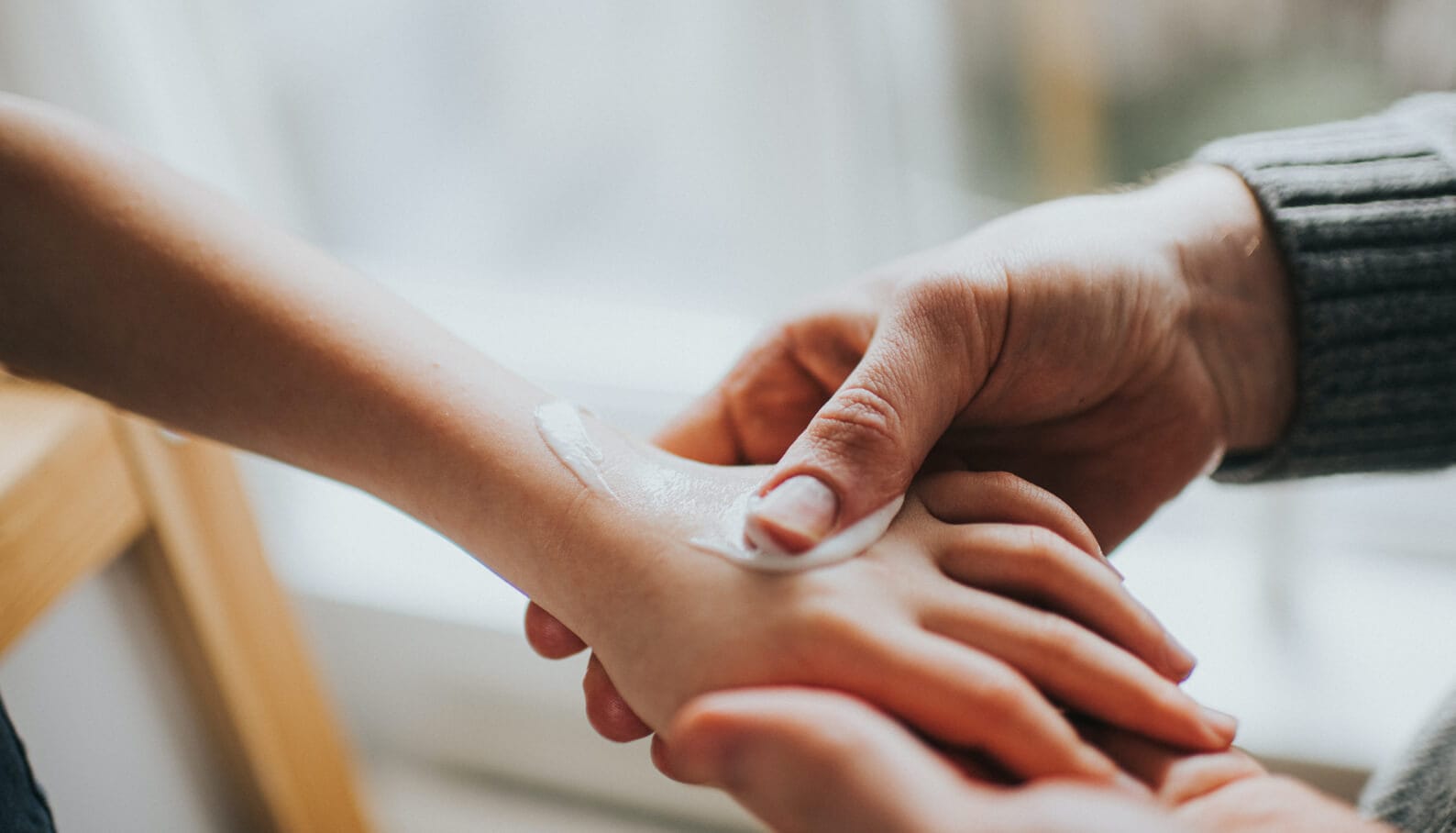Excoriation: It’s a scary word for a really common problem among people with unrelenting itch due to atopic dermatitis.
“Excoriations really mean scratch marks,” says Adelaide Hebert, M.D., chief of pediatric dermatology at the McGovern School of Medicine and Children's Memorial Hermann Hospital in Texas.
It’s an issue, she says, because when people with this chronic, inflammatory skin condition scratch themselves, they further destroy their already defective skin barrier.
The trouble is atopic dermatitis is extremely itchy. People who have it often cannot resist the urge to dig their nails into their skin, and scratching can worsen skin symptoms, which causes more itching.
What causes extreme itchiness
The skin is the body’s largest organ. Normally, it retains moisture and hinders external threats, preventing germs and allergens from entering the body. But in people with atopic dermatitis—the most common form of eczema—their suit of armor is compromised.
“I tell my patients to think about their skin being covered in polka dots. The water can come out and the trigger factors can come in,” Hebert says.

Fortunately, skin is resilient. It can rebound from superficial scratch marks.
The problem with scratching too much
Scratching also creates a port of entry for viral and bacterial infections.
Relentless scratching also thickens the skin, and those thick skin patches don’t respond to topical treatments, says Jon Hanifin, M.D., professor of dermatology at Oregon Health & Science University in Portland.
“We don’t want them to thicken their skin; we want them to stop scratching. But we can’t tell them to do that; we have to use good medicines to make them stop,” he says.
Fortunately, skin is resilient. It can rebound from superficial scratch marks. And most excoriations aren’t deep enough to leave a scar, anyway, she says.
“Most often, these excoriations will resolve,” Hebert says. “They can indeed scar, but for the most part they do not.”
“Most often, these
excoriations will
resolve.”
— Dr. Hebert
How to heal excoriations
Patients with excoriations can begin the healing process by taking steps to repair their damaged skin barrier. Having an action plan for dealing with excoriations and preventing symptom flare-ups, including a rigorous bathing-and-moisturizing routine, is crucial.
Taking bleach baths may be one way to prevent infection in people with excoriations. The American Academy of Allergy, Asthma & Immunology recommends adding one-half cup of household bleach to a full tub of water. Soak for 10 minutes twice a week. Rinse with fresh water, pat dry and moisturize. (Parents, consult your pediatrician or dermatologist before giving your child a bleach bath.)
To repair the skin barrier, people with eczema also need to replenish the skin’s ceramides, which are naturally occurring fat molecules that help keep skin moist. People with atopic dermatitis have lower levels of these fatty substances in their skin, even when their skin looks normal and isn’t itchy, Hebert explained. Applying ceramide-containing creams two to three times a day is very helpful, she says.
It’s hard not to scratch an itch. If you have eczema, fighting that urge can be especially difficult. The good news is that you can take steps to not only help your skin heal, but also keep you safer from harmful infections that can further damage your skin.


